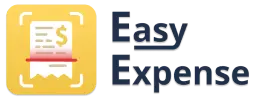
What Are Business Tax Write-Offs?
Business tax write-offs (or business tax deductions) are business expenses you can claim to reduce taxes on your income. Business expenses are generally the costs of doing or running your business. However, you must know which expenses are deductible and how records should be kept. Properly claiming business tax deductions allows you to maximize your tax returns.
Do I get money back from business tax write-offs?
Unfortunately, you don't get money back by writing off your business expenses. Claiming business tax deductions lowers your taxable income, meaning less income is taxed. In other words, you're paying more taxes than you should if you don't write off your business expenses.
Who can claim business tax write-offs?
You can generally claim business tax write-offs as a small business owner or self-employed worker. However, the deductions available depend on your business type (entity). Here is a list of businesses that will have tax deductions:
- Small business owners, sole proprietorships, single-member LLCs (Schedule C)
- Self-employed workers, freelancers, gig workers (Schedule C)
- S-Corporations (Form 1120S)
- C-Corporations (Form 1120)
Common Business Tax Write-Offs
Many tax-deductible categories are available to help you categorize your tax deductions. We recommend finding common and specific expenses in your industry to determine what you should track. Here are a few examples of common tax write-offs:
- Office supplies and materials (paper, pens, snacks, etc.)
- Phone bills and accessories (monthly phone bill, protective cases, charging cables, etc.)
- Software and subscriptions (Canva, Photoshop, Microsoft Office, etc.)
- Work equipment (tools, saws, video cameras, etc.)
- Advertising costs and website fees
- Legal and professional fees (lawyers, consultations, etc.)
- Contractor fees
- Wages and labor fees
Can I write off all of my business expenses?
It's only possible to write off some business expenses. There are limits for certain expenses like gifts (up to $25 per person), and it must be considered tax-deductible. Here are a few factors for tax-deductible expenses:
- Ordinary and necessary. The expense must be commonly accepted in your industry (ordinary) and should help your business (necessary).
- For business. The expense must be related to your business. It can't be only for personal reasons. If it's a business expense but also used personally, you can only deduct the business part of it.
Do I need to keep my business receipts?
When claiming tax deductions, you should have records to support your claim. Documents like receipts, invoices, and credit card statements should show the vendor, the amount and date paid, and proof of payment (multiple documents can be used). You should also note the business purpose and which items were for business (if there are non-business items).
How do I track business expenses?
Since keeping records is tedious and can be lost, we recommend using an expense tracker or bookkeeping service. Not only will your data be stored on the cloud (digital storage), but you'll also have access to time-saving tools like a receipt scanner, expense reports, and mileage tracking. However, you can still store expense-related documents in a file cabinet and manually track them through a spreadsheet program like Excel.
Other types of deductions
You can claim other deductions along with your business tax deductions. This is important for financial efficiency, especially for small business owners, independent contractors, or self-employed freelancers. Here are a few other deductions worth looking into:
- QBI Deduction allows certain pass-through businesses to claim up to 20% on their qualified business income as a tax deduction.
- Home Office Deduction is for those using part of their home exclusively for business. Self-employed workers will often claim this as they work from home.
- Car Expense Deduction is for those wanting to deduct their vehicle-related expenses.
- Work equipment (tools, saws, video cameras, etc.)
- Standard Mileage Deduction is for those driving for business purposes (business miles driven multiplied by the IRS standard mileage rate). Learn about the best mileage tracker apps to track these.
Conclusion
Business tax write-offs are business expenses you can claim to reduce your taxes. Business expenses are costs related to your business, and it's important to know which ones are tax-deductible. We recommend using an expense tracker to help you maximize your tax deductions.